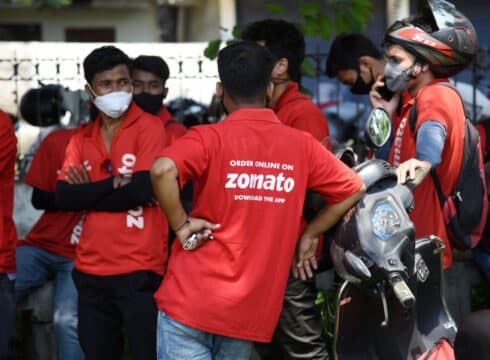“Even the most organised outlets in the industry don’t see operational benefits and customer trust in running too many brands from a single kitchen,” said Zomato
The foodtech major would display the brands being served by a single kitchen within the app
Interestingly, the FSSAI allows a single cloud kitchen to serve as many brands as it can
Inc42 Daily Brief
Stay Ahead With Daily News & Analysis on India’s Tech & Startup Economy
In a blog post on Friday, Zomato addressed the issue of multiple brands being run from the same cloud kitchen. It stated that it will conduct manual checks to ensure that the brands being served from a common location are differentiated enough.
“Going forward, we are going to manually check any physical location which runs more than 10 brands out of a single location,” said Zomato, adding that even the most organised outlets in the industry don’t see operational benefits and customer trust in operating too many brands from a single kitchen.
Zomato added that it would whitelist the brands that provide a good customer experience while serving multiple brands. For the rest, the foodtech major provided an email address to reach out to.
Further, the foodtech major would display the brands being served by a single kitchen within the app so that the customers can make an informed decision.
Zomato added that it has engaged with the National Restaurant Association of India (NRAI) and other restaurant partners to help curb these practices. “It is imperative for us to work together to protect the good work done by so many professionally run restaurants and jointly create parameters to avoid the misuse of the aggregator platforms in such a blatant and abrasive fashion,” Zomato said.
The issue was raised a few weeks ago in a Substack and Twitter post by Prashant Baid, who goes by the username, Pea Bee. In his research, Baid uncovered a single kitchen in Bengaluru serving around 200 brands each on Zomato and Swiggy.
What Is Happening?
Calling these operators ‘fly-by-night’ operators, the listed foodtech giant said that the brands served had little to no differentiation, leading to a poor customer experience.
“Additionally, managing multiple brands and cuisines is operationally complex, and unless done with the right SOP and oversight, this leads to high inconsistencies in food quality and hygiene,” Zomato said. It presented a graph comparing the number of brands served by one kitchen to the average customer rating of the brand.
Interestingly, the Food Safety and Standards Authority of India (FSSAI) allows a single cloud kitchen to serve as many brands as it can, which makes it trickier for aggregator platforms to stop operators from making multiple brands.
According to FSSAI’s frequently asked questions, “FSSAI license is based on the premise. All kinds of food business activities that are being conducted at the same premise can be applied for in a single FSSAI license.”
This loophole has prompted cloud kitchen operators to create tens of even hundreds of brands, with little differentiation in their menus and quality of service. This has inevitably led to questions on the legality of the matter and other aspects such as hygiene and customer experience.
It also seemed that these brands are least bothered by poor customer ratings. Per Baid’s research, none of the brands running from the cloud kitchens he investigated was rated 4.0 or above.
Zomato’s action comes weeks after Baid revealed the issue on Twitter and while the foodtech major can blacklist cloud kitchens with a large number of brands, the operators are sure to push back, citing the FSSAI bylaws.
{{#name}}{{name}}{{/name}}{{^name}}-{{/name}}
{{#description}}{{description}}...{{/description}}{{^description}}-{{/description}}
Note: We at Inc42 take our ethics very seriously. More information about it can be found here.


